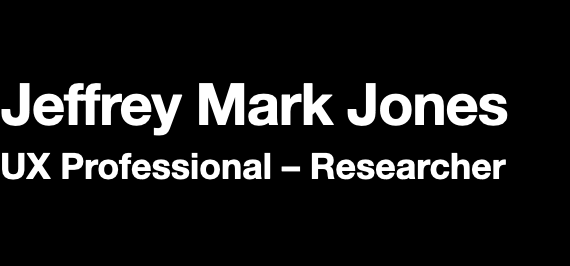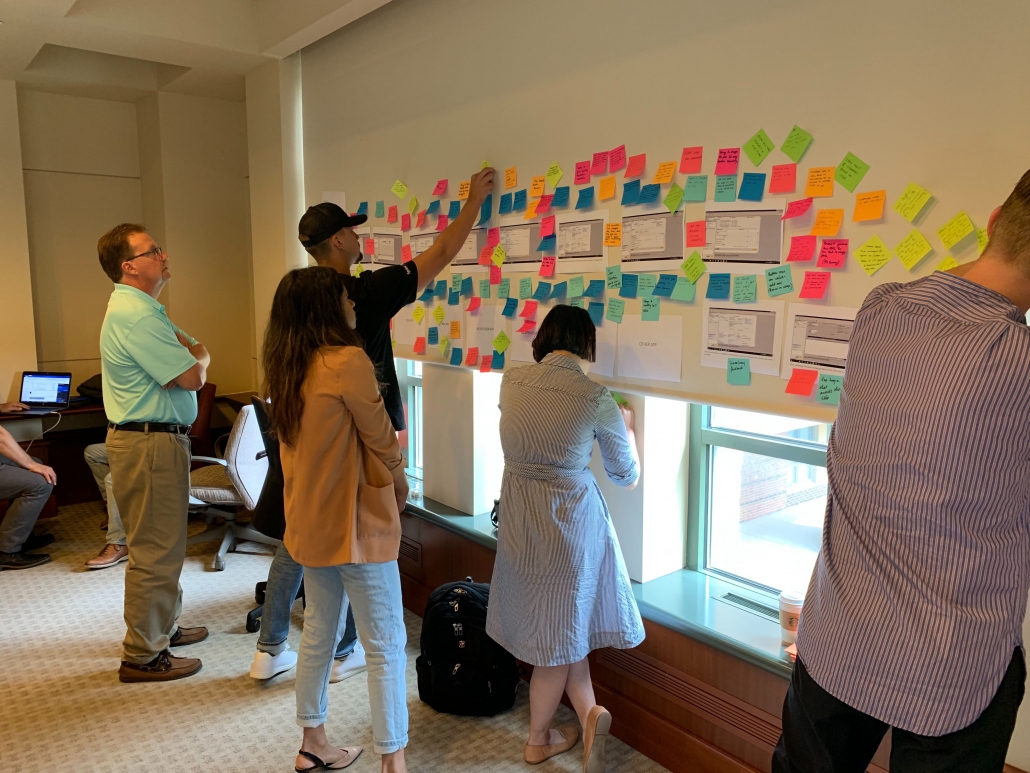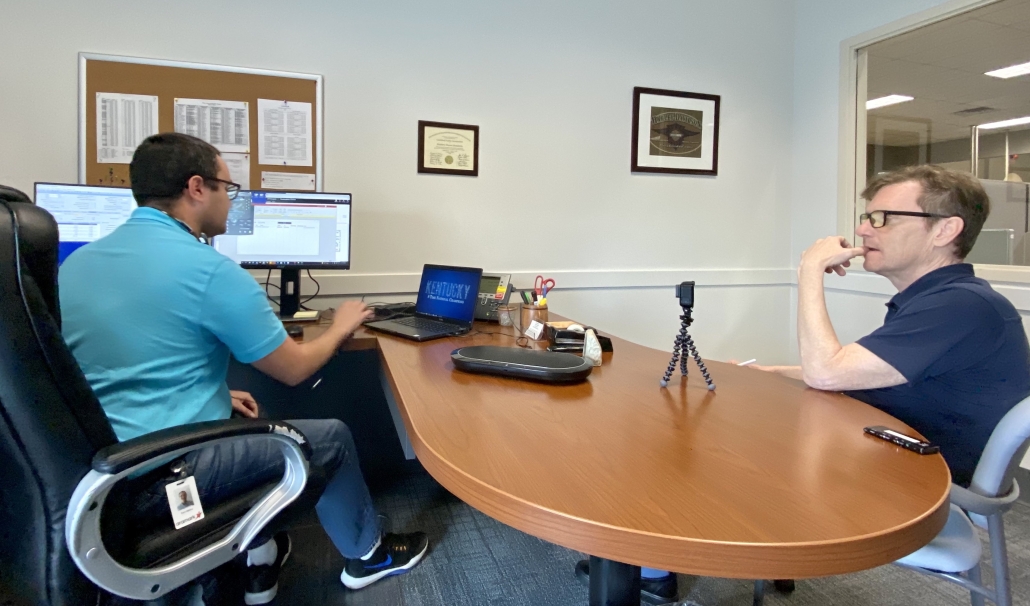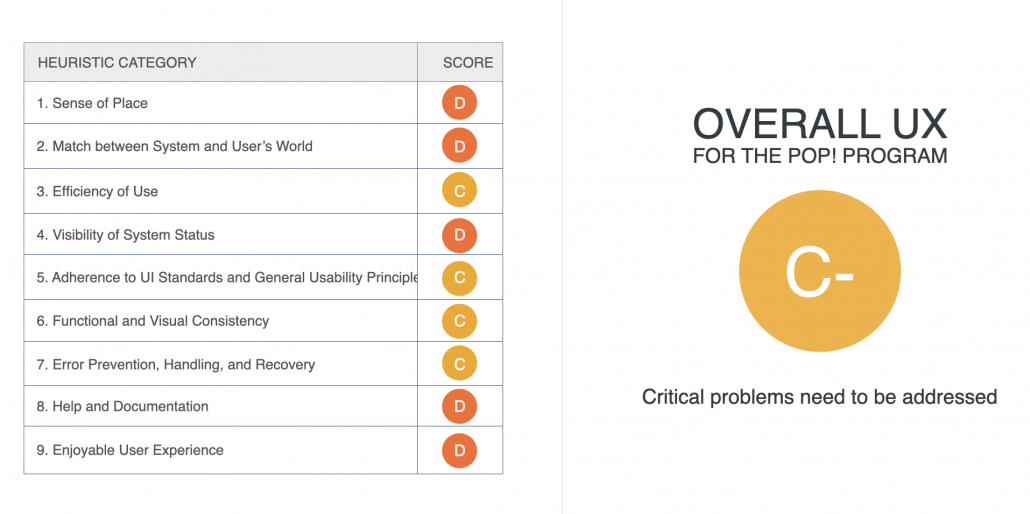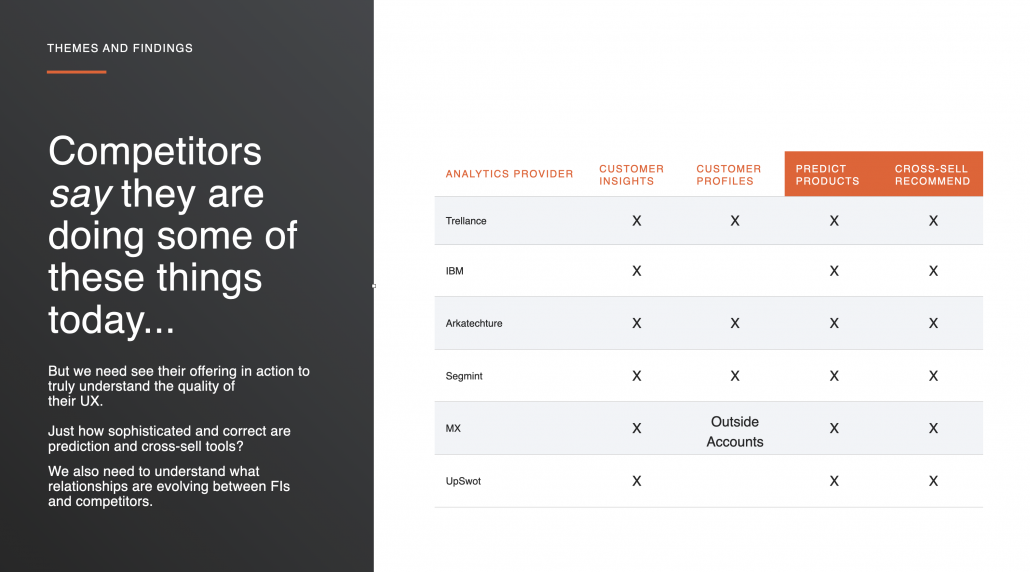Foundational Analysis
Before any research can be started, before any ideation or future planning can be done, it is crucial to begin with a foundational analysis of the project. We’ll start with a kickoff meeting or workshop that can identify the problem space from different perspectives and unify the goals.
Then I’ll conduct one-on-one interviews with stakeholders to ensure we’re researching the right things with the correct people and asking the right questions. If there is an existing system we can perform a heuristic analysis. We can research competitors and see how they address the problem space.
Activities
- Kickoff Workshop
- Stakeholder Interviews
- Heuristic Evaluation
- Competitive Analysis
- Existing Research Review
Kickoff Workshop
Workshops are a set of activities conducted in-person or remotely (using a collaboration tool) and scheduled for an hour, a day or a week. The workshop surfaces the most pertinent information in the fastest way in order gain alignment and begins the project with a single common understanding.
Workshops will provide:
- Perspectives – gather a variety of ideas and opinions in one forum on an equal level
- Transparency – between department, units, companies, consultants
- Collaboration – everyone participates together, not just one recommendation coming from above or outside
- Unification – unify ideas, validate them, prioritize them
- Identification – what areas need further discussion, additional research, what is the scope, what is the level of effort?
- Trust and understanding – between business units, groups, companies
Stakeholder Interviews
An interview with high-level employees who are subject matter experts or are impacted by the project. We need to gain firsthand awareness of the company context and the business goals. The output from these interviews will be used to identify priorities, conflicts, and affinities to craft the protocols and methods used for the project.
Heuristic Evaluation
This lets us quickly identify major usability issues within areas of the system. This will help inform future research, design and development decisions. If there is literally no time for research, this is the baseline method to discover how to improve the usage and performance of a product or system.
Heuristic Evaluations are a great way to get a usability baseline for a new or existing interface, for clients and competitors. Again, the evaluation can be as simple as an assembly of screenshots with issue callouts or a detailed evaluation using an xls of hundreds of guidelines. I prefer to use a pared down evaluation form created by UserFocus, a London-based usability consulting and usability training company.
Competitive Analysis
A process of identifying and evaluating the strengths and weaknesses of competing products or companies in a market. This will a help clients understand their competitors’ strengths and weaknesses, identify market trends and opportunities, and develop strategies to improve their own products or services.
Existing Research Review
A review of all qualitative and quantitative data collected in the past. We need to understand what problems were already identified, what areas need to be expanded or reevaluated.
